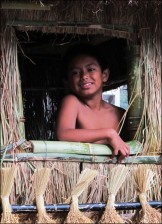Lent and Igorot religious holidays
BAGUIO CITY, Philippines—As with Christians around the world, the Igorot folk in the Cordillera also have a time for everything—sowing and reaping, birth and death, and mourning and celebration.
But while Christendom’s rites and practices revolve around and are based on the teachings and life of Jesus Christ, Igorot religious rites have revolved around the upland folk’s farming cycle.
During Lent, Christians take a break from work to reflect on the passion and death of Christ during Holy Thursday and Good Friday and celebrate His resurrection on Easter Sunday. Besides Christmas, Holy Week is one of the longest official holiday breaks in the country.

AGRICULTURE plays an important part in the religious rituals of Igorots in Mt. Province. Photo by EV ESPIRITU/INQUIRER NORTHERN LUZON
In Sagada, Mt. Province, a bastion of Anglican Protestantism, residents, who are mostly baptized Anglicans, still observe more farming-related holidays and feasts than Christian holidays.
“Despite the introduction of Christianity, our people [still] adhere to some diverse cultural practices and our lives revolve around and closely interact with Mother Nature,” writes Dinah Elma Piluden-Omengan in her book, “Death and Beyond.”
Sagada was the first Christian mission area of the American Episcopal Church where the Rev. John A. Staunton was its first missionary assigned in 1904.
Article continues after this advertisementIn her book, Omengan notes a local calendar, which marks certain holiday breaks based mostly on farming cycles and other community activities.
Article continues after this advertisementThe local calendar starts in Kilalaw (which is approximately January) and followed by Opok (February), Bakakew (March), Kitkiti (April), Kiyang (May), Panaba (June), Bandaway (July), Adogna (August), Pogpogew (September), Kiling (October), Liponed (November) and Inana (December).
Anglican heritage
With Sagada’s Anglican heritage, the community during the first week of Opok celebrates its three-day town fiesta in honor of the local church’s patroness, the Blessed Virgin Mary.
But in the last week of Opok (February) or the early days of Bakakew (March), the community holds a major religious festival called “Begnas di Lebek.” The community celebrates this with gongs and dancing as elders invoke the gods and spirits for good harvests for crops such as rice, corn and beans.
The “begnas” is a series of feasts and holiday breaks that is held almost year-round.
During Bakakew or Kitkiti (April), Sagada celebrates the “Begnas di Sasaad” or feast for new houses. This is the dry season so it is an opportune time for relatives and community members to help each other in repairing, if not building, houses through cooperative self-help.
Those who help in repairing and building houses partake of the feast hosted by the “dap-ay” (traditional learning institution for boys and men) in the villages of Dagdag or Demang near the town proper.
As the community’s rice fields turn heavy and golden with ripe grains between Kiyang (May) and Panaba (June), Sagada folk celebrate a major feast—the “Begnas di Do-ok.” During this feast, elders again invoke and thank the gods and spirits for a good harvest.
A “mangipango” (leader), any elderly man from the chosen dap-ay, observes fully the ngilin or holiday and taboos required of a begnas leader, such as not eating certain food.
During this begnas feast, the village observes a five-day ngilin during which villagers take a break from their farms, especially their rice fields. For two nights of the ngilin, villagers play gongs as others dance to the gongs’ beat and rhythms.
Almost simultaneous with this begnas feast during May and June are wedding rites called “babayas.” Wedding rites are also festive. But newlyweds have to listen intently to the counsel of elders, who also pray for fertility for the couple—in terms of children and success in their livelihood.
Sports fest
Another feast, called “Begnas di Tangeb di Lakat,” is done during Bandaway (July) or Adogna (August) at onset of the rainy season. A highlight of the feast until in the recent past was a sports game held in the rice fields in Bangbangan village.
Teenage boys from Demang village would engage in a “boknit” or “bowag” (clay fight) against their counterparts in the villages of Dagdag, Daoangan and Patay. In other rice fields, other boys would do the “dadma” or “gagtin,” a wrestling and kicking or striking sport.
But before the competition starts, the boys and elders would perform religious rites during which they butcher chickens. These rites were meant to protect the participating boys from any injury or harm during the contests.
Omengan says elders had designed the sports competition, which is no longer practiced now, as part of an educational process for boys as they grow to become men.
“Besides teaching them about sportsmanship, the boys had to develop stamina and strength to prepare them for the rigorous farm work, which included burying rice stalks with one’s feet as a substitute for plowing,” she says.
Another feast, the “Begnas di Yabyab,” is held during Kiling (October) or during Liponed (November). Residents ask the gods and spirits for good harvest from the “topeng,” the second rice crop especially in irrigated farms.
It is wedding season again when it gets cold during Inana (December). And during the first week of Kilalaw (January), the community performs and celebrates the “Begnas di Tangeb di Babayas” to close the wedding season.